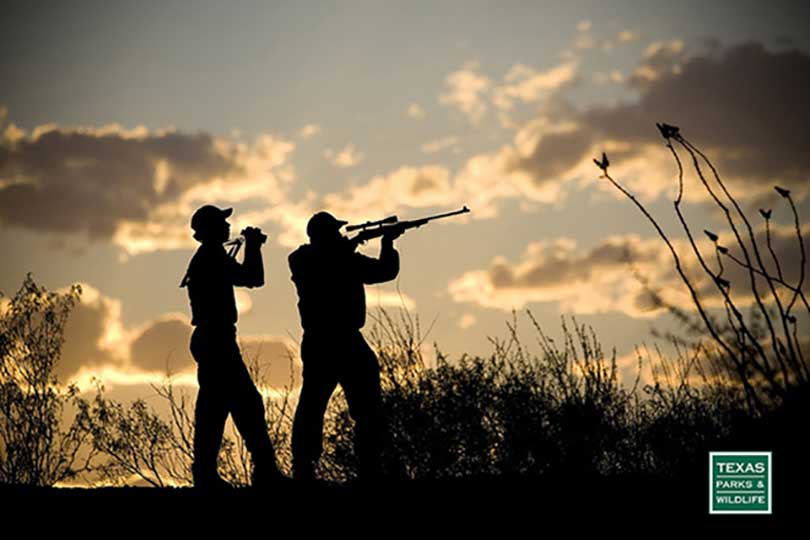Texas Parks and Wildlife Department (TPWD) reports hunting-related accidents in Texas are at an all-time low since Hunter Education became mandatory in 1988.
TPWD’s 2021 Texas Hunting Accident Report said of more than 49,000 hunter education certifications in 2021, Texas experienced only one fatality and 11 accidents statewide.
“It’s just interesting to watch the trends,” Steve Hall, the Hunter Education coordinator for TPWD, told the Texas Farm Bureau Radio Network. “It was surprising that we didn’t have as many incidences, because during the COVID era, there were actually a few more folks out hunting and spending more time out hunting. We call those hunter days. That was a nice surprise for us that we had a little bit lower incident rate.”
Hall said three quarters of the incidents in 2021 were what is called “swinging on game outside of a safe zone of fire.”
“It’s a classic dove and quail and pheasant-type of a hunting incident, where somebody swings their gun at a fast-flying bird, and they swing it outside of a safe zone of fire, and they strike pellets into their partners or companions that are nearby. That was a little higher this year,” Hall said. “And two of them were a new phenomenon, and those were hog hunting incidents at night. Those were also swinging on game outside of a safe zone of fire, but they were actually shooting at running hogs with their night vision scopes, and, essentially, they struck a bullet into their partner who was standing nearby.”
Hunter education is required for every hunter in Texas, including out-of-state hunters, born on or after Sept. 2, 1971. The minimum age for certification is nine years of age, and certification is good for life.
There are two course options for anyone who needs to take hunter education.
The basic classroom course includes six hours of instruction plus skill exercises, a review and then a final exam. These types of courses are most often held in schools or in an indoor venue.
The online course, combined with a field course, has two parts: a free online course that should be completed first, and then the field portion that typically takes a minimum of four hours to complete. The field course contains a presentation on ethical and responsible hunting, participation in a hunting skills trail, a live-fire exercise, a review of regulations and a final exam.
There is also an online-only course that is restricted to anyone 17 years of age or older. Online coursework varies from two to four hours depending on pre-knowledge, age, reading level and other factors.
“I think the neat thing about hunter education is that it includes the legal and the ethical and the responsible kinds of things that you would do as a hunter beyond safety,” Hall said. “We teach them how to take a good shot, which is reducing wounding rates and things like that. Then how to take care of the game, which is, of course, paramount, because every hunter takes game animals. They need to learn how to take care of it from what we call field to fork. And then beyond that, we talk about public image, social media image and all the different kinds of things that go with that. Then, we talk about fair chase and trying to always challenge yourself more and more as a hunter in making sure that the chase towards the animal is a fair and effective chase.”
Hunters must have proof of Hunter Education certification on their person while in the field. Hunters have access to their Texas proof of Hunter Education in the free Outdoor Annual mobile app for iOS and Android.
Learn more about Hunter Education, how to sign up for a course and find resources for students on the TPWD website.

